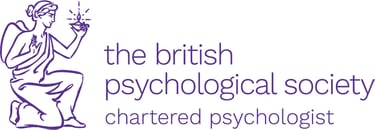What Tests Are Used?
Dr Sahar uses the "gold standard" tests, meaning tests that are contemporary and most evidence-based testing, and thus are widely recognised for their utility (validity and reliability). These include, but are not limited to tests such as:
Wechsler adult intelligence scale (WAIS) and Wechsler Intelligence Scale for Children (WISC)
Wechsler Individual Achievement Test (WIAT)
Autism Diagnostic Observation Schedule, Second Edition (ADOS-2)
Achenbach System of Empirically Based Assessment (ASEBA)
Conners’ Adult ADHD Rating Scales (CAARS)
Childhood Autism Rating Scale (CARS)
Stroop Word and Colour Test
Adaptive Behavior Assessment System-II (ABAS-II)
Delis-Kaplan Executive Function System (D-KEFS)
Tests used will vary depending on the type of assessment that is being carried out, and thus not all tests will necessarily be utilised in all assessments.
Psychological Evaluation - Assessment and Testing
Please review below common queries clients may have about Dr Sahar's psychological evaluation
What Kind of Assessments Do You Offer?
Dr Sahar offers a range of UK standard assessments, including
Attention-Deficit Hyperactivity Disorder (ADHD)
Autism Spectrum Disorder (ASD)
Cognitive Impairment, e.g., memory or attention difficulties
Learning Disability
Specific Learning Difficulties, e.g., Dyslexia, Dyscalculia
Academic Assessments
Intellectual Ability (IQ testing)
The assessments are for anyone aged 7 years or older, except for ASD assessments which are for anyone aged 6 years or older.
What Can I Expect From The Assessment?
What you can specifically expect will depend on your particular situation and the type of assessment you will need (e.g., ASD, ADHD etc). However, the typical procedure would involve the following, often in this order:
Screening: an initial intake meeting, consisting of an interview and subsequently completing a series of standardised questionnaires and developmental history forms. The purpose of the screening is to ensure that we get a full understanding of you or your child so that we address all of your needs and therefore provide the right assessment. In other words, the screening will inform your psychologist of the specific type of assessment that is recommended for you or for your child's needs. However, please note that you will be the person to have the final say in whether you want to proceed with the recommended assessment (if its different from what you initially came in for)
Assessment and testing: This involves additional standardised semi-structured interviews and questionnaires as well as behavioural (e.g., ADOS-2) and cognitive testing (e.g., WISC) over a series of meetings, depending on the type of assessment. Note that the behavioural and cognitive testing will need to be in-person and occur at a designated office. The purpose of this stage is to test for and gather information about your reported needs, experiences and/or reported issues/concerns.
Feedback: Once the psychologist has scored and analysed the results, you will have the opportunity to meet with them face-to-face at a convenient time to go through the results and outcome of the assessment - this usually will occur approximately one month after your last Assessment/Testing appointment. You will also receive specific recommendations and have an opportunity to ask and clarify any questions you have. Following your feedback meeting, you will be sent a formal comprehensive psychological report, signed by Dr Sahar. This report will include a summary of your concerns, the purpose of the assessment, the procedure and tests used, results and outcomes, and unique recommendations.
What Are The Benefits of a Psychological Evaluation?
Psychological evaluations provide clear insights into cognitive, emotional, and behavioural functioning, helping individuals and families understand and address a range of challenges. Here are some key benefits:
Accurate Diagnosis: Evaluations use evidence-based assessments, leading to accurate diagnoses of conditions like Autism Spectrum Disorder (ASD), Attention-Deficit/Hyperactivity Disorder (ADHD), learning disabilities, and cognitive impairments. These diagnoses are essential for understanding the underlying causes of challenges and ensuring effective support.
Personalized Intervention Plans: Each evaluation provides detailed recommendations for educational, therapeutic, and practical interventions tailored to the individual’s unique strengths and needs. This personalization allows for targeted, effective support strategies, making a meaningful difference in day-to-day functioning and growth.
Enhanced Self-Understanding: Through insights from standardized assessments, individuals gain a comprehensive learning profile highlighting developmental abilities, allowing a better understanding of behavioural, cognitive, and emotional strengths and areas for growth. This self-awareness fosters empowerment and can boost self-esteem and motivation to address challenges.
Support for Families and Caregivers: Psychological evaluations offer clarity for families, allowing them to better understand and respond to their loved one’s needs. Equipped with professional guidance, families are better positioned to advocate effectively in educational, medical, and social settings.
Informing Academic and Vocational Choices: Comprehensive reports offer a roadmap for educational accommodations, career planning, and other life choices. By understanding cognitive strengths and learning styles, individuals and families can make informed decisions about school programs, job settings, and skills training.
Long-Term Planning: Evaluations provide a baseline that can help track progress over time. This information is invaluable for ongoing treatment, allowing professionals to adjust intervention strategies based on measurable change and the individual’s evolving needs.
Whether for a child struggling in school or an adult looking to better understand their cognitive profile, a psychological evaluation provides clarity, direction, and a foundation for positive change.








